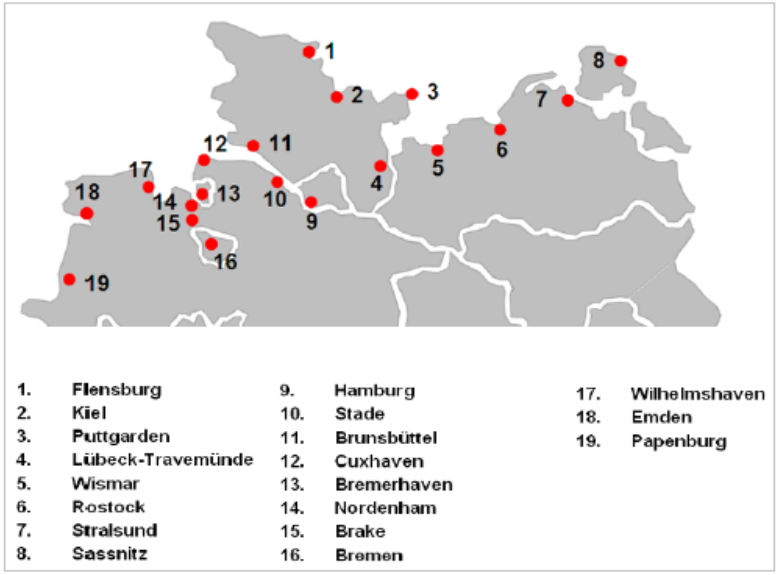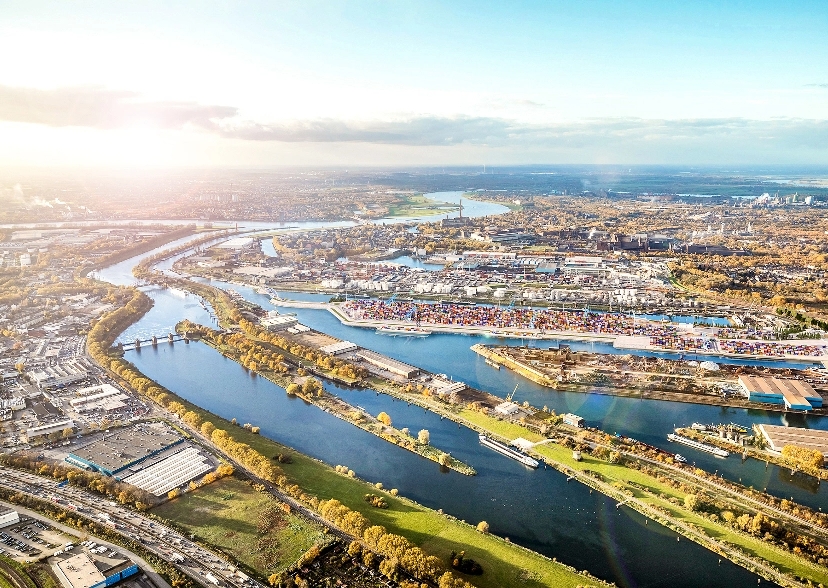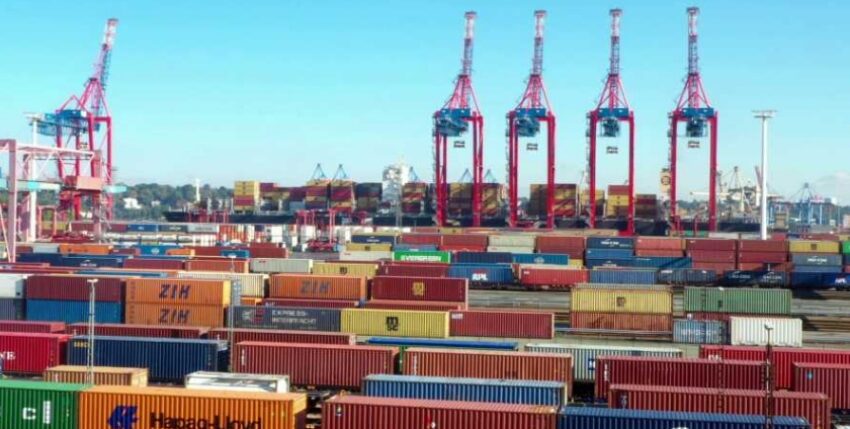The ports of northern Germany are to become climate-neutral in the long term. The federal government is providing an additional 400 million euros over the next four years for the modernisation of shipping and infrastructure.
The investments, which are to come from the Climate and Transformation Fund (KTF), are earmarked for the construction of green shore power systems and energy bunkers as well as climate-neutral shipping routes, explained Federal Transport Minister Patrick Schnieder (CDU) during a visit to the port of Duisburg in North Rhine-Westphalia at the beginning of July. The transfer of urban commercial traffic to the waterways should also be promoted, as modern shipping with the corresponding infrastructure is the backbone of Germany as a business location, said Schnieder. The federal government, federal states and industry must now join forces, and the millions in modernisation funding are an important step in this direction.
However, the Central Association of German Seaport Operators (ZDS) believes that this is only the first step. The association puts the financing requirement for public port facilities and waterways as part of the critical infrastructure (KRITIS) at around 15 billion euros nationwide. The necessary modernisation can only be achieved with a sustainable long-term financing strategy, said Florian Keisinger, the new Managing Director of the ZDS since 1 May 2025. German seaports are essential for economic stability and resilience. Issues such as the energy transition, security and technological innovations are crucial for their future, said Keisinger. He expects that the promised funds will now be quickly allocated to specific projects - be it in the area of wind energy or low-emission port operations.

The northern German coastal states have long been calling for the federal government to make a greater financial contribution to the expansion of seaports towards climate neutrality. According to the Association of Seaport Operators, the federal states have so far only received an additional 38 million euros per year for all ports.
The CDU parliamentary groups in the five coastal states of Bremen, Hamburg, Mecklenburg-Western Pomerania, Lower Saxony and Schleswig-Holstein are becoming more specific and are calling for the seaports to be co-financed from the federal share of the "Infrastructure and Climate Neutrality" special fund. Only if the investment backlog is cleared and the competitiveness of German seaports is maintained in the long term will the prosperity of our country be secured, according to Lower Saxony's CDU parliamentary group leader Sebastian Lechner, because the "ports are systemically relevant". This requires reliable basic funding from the federal government of at least 500 million euros per year as well as a national port strategy worthy of the name, he added.
The newly appointed Federal Government Coordinator for the Maritime Economy and Tourism, Christoph Ploß (CDU), explained that the additional federal funding that has now been made available will provide the coastal states with significantly more support than before. According to Ploß, additional revenue from the Climate and Transformation Fund will flow back into the modernisation of the maritime economy through the integration of maritime transport into EU emissions trading. Shipping projects and inland ports would also benefit from this.

The German Shipowners' Association (VDR) also welcomed the federal government's announcement. It is not just about new ships, but also about the necessary port infrastructure and the widespread availability of affordable, green fuels, said VDR President Gaby Bornheim. It is therefore crucial that the funds raised through emissions trading are channelled back into the maritime industry.
According to the ministry, details of the funding opportunities are currently being finalised and will be presented in the course of the year.
It will therefore remain exciting to see how the federal government responds to the federal states and maritime partners. There are truly more than enough topics and projects. In addition to the supply of green fuels and shore power, energy storage and modern - not Chinese - crane infrastructure, the expansion of heavy-duty quay facilities, the hinterland connection to the railways and the autonomous operation of ships remain constant challenges, to name just a few.
kdk, NDR







